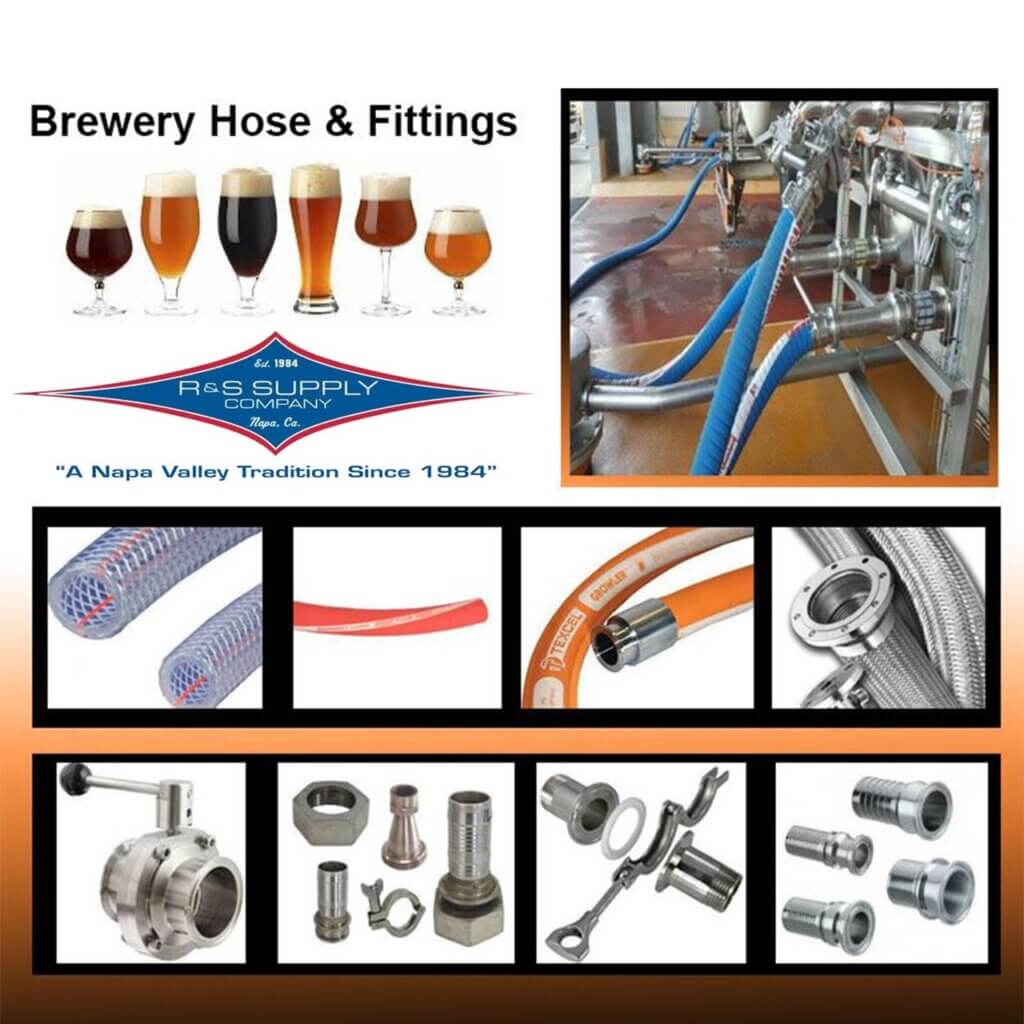The Seven Types of Brewery Hose Materials: What You Need to Know
- Chlorobutyl
- FDA UHMW
- PVC
- Silicone
- Nitrile
- EPDM
- PTFE (Teflon)
Chlorobutyl Hoses
The kind of hose material used most frequently in brewery hoses. The FDA has authorized the use of these hoses for the transportation of food and beverages and deems them to be in compliance with 3A Sanitary Standards.
The microbe-resistant, ultra-smooth tube is made for non-oily applications and is appropriate for clean-in-place (CIP) processes.

• Temp. Range: -40°F to 225°F
• Working Pressure: 250PSI
• Ultra smooth inner bore
• Abrasion resistant
• Chemical and ozone resistant
• Will not impart taste or odor
FDA UHMW Hoses

• Temp. Range: -40°F to 225°F. (CIP to 248°F. Not for continuous steam service)
• Working Pressure: 200PSI
• Ultra smooth inner bore
• Will not impart taste or odor
PVC Hoses

• Temp. Range: -25°F to 150°F
• Working Pressure: 70PSI depending upon temperature
• Food & Beverage Dispensing
• Air & Water Supply Lines
• Clear for additional visibility
Silicone Hoses

• Temp. Range: -100°F to 350°F
• Ultra flexible
• For use with autoclave and CIP processes
• Will not impart taste or odor
• Non-toxic, Non-pyrogenic
Nitrile Hoses

• Temp. Range: -13°F to 176°F
• Working Pressure: 200PSI
• Flexible material
EPDM Hoses

L• Temp. Range: -30°F to 220°F
• Working Pressure: 250PSI
• Extensive chemical compatibility
PTFE (Teflon) Hoses

• Wide Temperature Compatibility
• Chemical Resistance
• Steam Compatibility
In conclusion, brewery hoses are made of a variety of materials, each with its own benefits and drawbacks. The right hose material for a particular application depends on the needs of the brewery. Choosing the wrong hose material can result in costly repairs or even downtime. When in doubt, consult a hose specialist to find the best hose for your brewery.
For more information visit us on -: https://www.rssupply.com/
